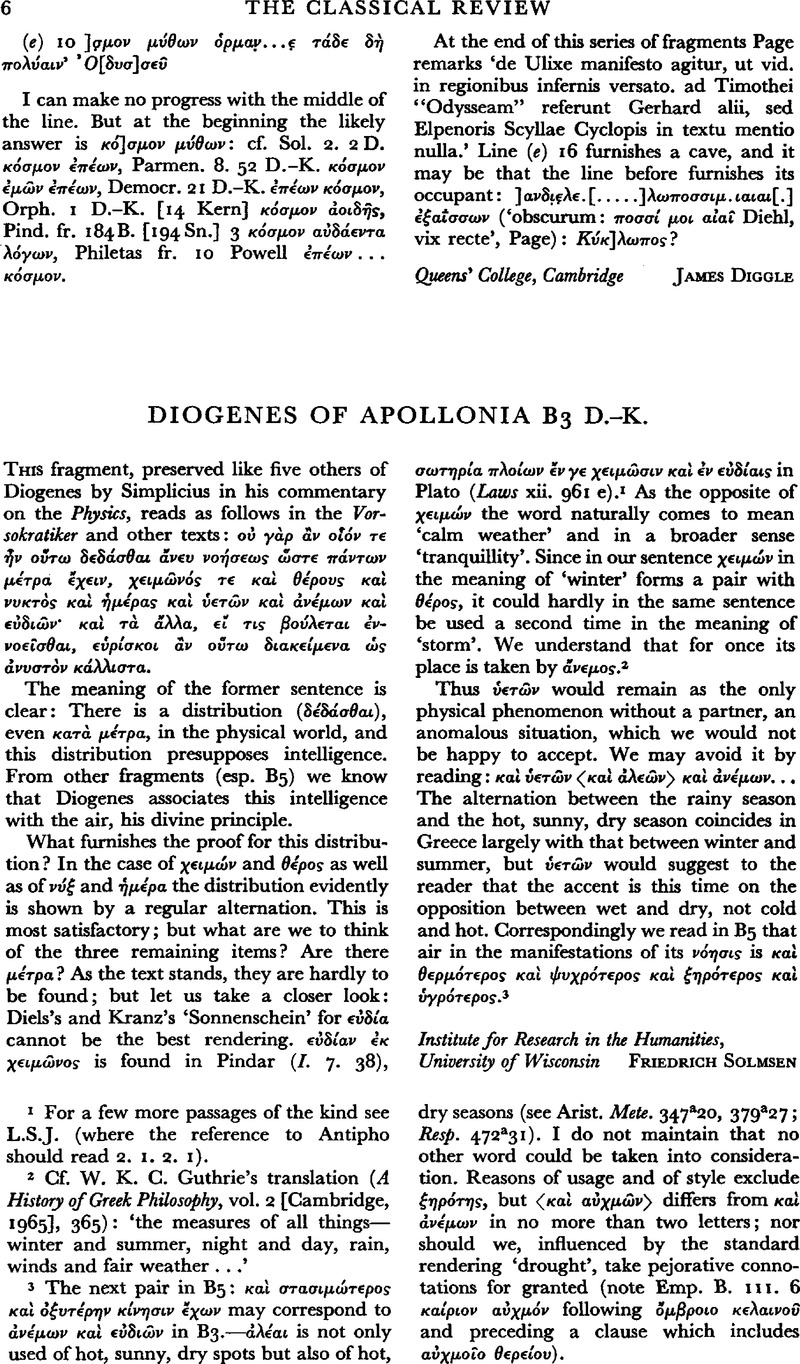No CrossRef data available.
Article contents
Diogenes of Apollonia B3 D.-K.
Published online by Cambridge University Press: 27 February 2009
Abstract

- Type
- Review Article
- Information
- Copyright
- Copyright © The Classical Association 1970
References
1 For a few more passages of the kind see L.S.J. (where the reference to Antipho should read 2. 1. 2. 1).
2 Cf. Guthrie's, W. K. C. translation (A History of Greek Philosophy, vol. 2 [Cambridge, 1965], 365)Google Scholar: ‘the measures of all things—winter and summer, night and day, rain, winds and fair weather …’
3 The next pair in B5: κα⋯ στασιμώτερος κα⋯ ⋯ξυτ⋯ρην κ⋯νησιν ἔχων may correspond to ⋯ν⋯μων κα⋯ εὐγι⋯ν in B3.—⋯λ⋯αι is not only used of hot, sunny, dry spots but also of hot, dry seasons (see Arist. Mete. 347a20, 379a27; Resp. 472a31). I do not maintain that no other word could be taken into consideration. Reasons of usage and of style exclude ξηρ⋯της, but <κ⋯ αὐχμ⋯ν> differs from κα⋯⋯ν⋯μων in no more than two letters; nor should we, influenced by the standard rendering ‘drought’, take pejorative connotations for granted (note Emp. B. III. 6 κα⋯ριον αὐχμ⋯ν following ⋯μβροιο κελαινο⋯ and preceding a clause which includes αὐχμοῖο θερε⋯ου).


